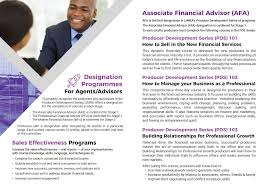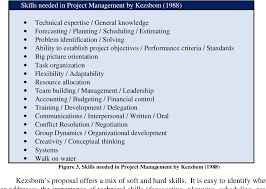
It is important to learn what it takes to succeed as an education consultant if your career goal is to become one. There are many aspects that you need to take into consideration, including the educational requirements, earning potential, and career outlook. Learn more about this occupation below. You can read on to find out more about what this job entails and what the typical salary for independent educational advisors.
Education requirements of educational consultants
While individual qualifications for educational consultants can vary by job title and location of employment, the majority have a master’s degree. A Master of Arts in Education (MAE) provides graduates with a liberal arts perspective on education and a solid foundation in teaching and research. MAE programs encourage students to participate in active learning, apply current teaching theories and practices, and conduct qualitative research.
An educational consultant usually works in a school, district or other education program, acting as an advisor and consultant. They provide guidance to educators, school staff, teachers, and administrators by reviewing curriculum and evaluating data. They also work with communities to provide professional development on a larger scale. Highly skilled educational consultants are passionate about their subject and have years of experience.

Average salary for independent educational consultants
Independent educational consultants often charge lower rates. They typically charge less than $140 an hr. Their services range from helping families find a college to reviewing college admission essays. They are also able to advise students about scholarships and financial aid. Independent educational consultants typically work in private practice, and can set their own rates. The type of service they offer will determine their rates.
Consultants are usually independent and market their services in schools and other organizations. They can charge hourly rates for their services or a set fee. Some consultants excel at sales and marketing while others struggle.
Earnings potential
An educational consultant consists of a qualified professional who has expertise in teaching or school management. They often work with school districts and colleges to improve educational services for children. Their roles range from designing and developing campus architecture and curriculum to coaching teachers and developing leadership abilities. Many educational consultants also offer their services to companies, helping them improve educational programs and services.
To become a successful educational consultant, you need to first learn about the educational field. The most important challenges faced by the field must be researched. You should look for reliable sources to provide information about these issues.

Educational consultants can expect a career in the future
According to the BLS, the demand for education consultants is expected increase in the coming years. According to BLS, the number of educational consultants working in America will grow by 6% between 2018-2028. However, growth will depend on local and state government budgets. As schools and districts are held accountable for test scores and graduation rates, they will increasingly seek out education consultants who can provide advice on curriculum and technology. The outlook for educational consultant jobs is not great, but it is expected to grow more quickly than the average occupation.
An education consultant should have knowledge of research-based teaching methods and classroom experience. In addition, he or she must have excellent communication skills in order to connect with all levels of school staff.
FAQ
How much do consultants earn?
While some consultants may make over $100k per annum, most consultants earn between $25k and $50k. The average consultant salary is $39,000 This includes both salaried and hourly consultants.
Salary depends upon experience, location, industry and type of contract (contractor/employee). It can also depend on whether the consultant has their own office or works remotely.
How long does it take to become a consultant?
It depends on the industry and your background. Most people start their career with only a few months to find work.
However, consultants can spend many years learning before they are able to find work.
How do I become a successful consultant?
Finding a passion area is the first step. Then you have to build relationships. You need to know what clients want and how they operate. Finally, you have to deliver results for your clients.
Although you don't have the ability to do everything perfectly, you must be better than anyone else. Passion is key. It doesn't suffice to say, "I will be a consultant." You have to believe in yourself, and in what you are doing.
Why should consultants be hired?
There are many reasons why you might need to hire consultants:
-
Perhaps your company has a specific problem or project you need to address
-
You want to improve your own skills or learn something new
-
You'd like to work in conjunction with an expert in a specific field
-
The task is yours alone.
-
It's overwhelming to see all the information, and you don't know how to get started.
-
You cannot afford to pay someone fulltime
A word of mouth referral is the best way you can find a competent consultant. Ask your friends and family if they know of any reliable consultants. If you already know someone who works as a consultant, ask him/her for recommendations.
Use the "Search People" function to search for consultants in your region if you are interested in using online directories like LinkedIn.
What is the secret to modern consulting?
The first consultants were accountants that helped companies manage finances. They were known as "accounting consults" because they are highly skilled in the management of financial information. However, this role soon expanded into other areas, such as human resources management.
The French word "to advise" is the origin of the term "consultant". It was first used by businessmen to refer to someone who could give advice about how to run an organisation. Many business owners use the term "consultant" to describe any professional advisor.
Statistics
- "From there, I told them my rates were going up 25%, this is the new hourly rate, and every single one of them said 'done, fine.' (nerdwallet.com)
- 67% of consultants start their consulting businesses after quitting their jobs, while 33% start while they're still at their jobs. (consultingsuccess.com)
- Over 62% of consultants were dissatisfied with their former jobs before starting their consulting business. (consultingsuccess.com)
- According to IBISWorld, revenues in the consulting industry will exceed $261 billion in 2020. (nerdwallet.com)
- WHY choose me: Why your ideal client should choose you (ex: 10 years of experience and 6-week program has helped over 20 clients boost their sales by an average of 33% in 6 months). (consultingsuccess.com)
External Links
How To
How to Start a Consultancy Company and What Should I Do First
Start a Consulting Company to make some extra money from home. It doesn't require any prior business experience nor capital. Building a website is a great place to start a consulting business. Once you have a website built, you can start using social media platforms such Instagram and Pinterest to spread the word about you services.
You can use these tools to put together a plan for marketing that includes:
-
Creating content (blogs)
-
Building relationships (contacts)
-
Generating leads through lead generation forms
-
Selling products online
Once you have created your marketing strategy you will need to find clients that will pay for it. While some people prefer to attend networking events and groups, others prefer online methods like Craigslist, Wikijiji, or Kijiji. You have the freedom to choose.
Once you have found clients, you should discuss terms and payment options. This could include hourly fees, retainer agreements, flat fee contracts, etc. It's important to know what you expect before accepting a client so you can communicate clearly throughout the process.
The most common type of contract for a consultancy service is an hourly agreement. You agree to offer certain services at a fixed fee each month or every week. You may be eligible to negotiate a discount, depending on the service that you offer. Make sure you understand what you are signing when you accept a contract.
The next step is to create invoices and send them to your clients. Invoicing is one thing that looks simple until it's actually done. There are many ways that you can invoice your clients depending on what your preferences are. You can choose to have your invoices sent directly to your clients or to print them and send them. No matter which method you choose to use, it is important that it works for you.
Once you have created invoices, it is time to collect the payments. PayPal is popular because it is easy to use, offers several payment options, and most people prefer it. However, other payment processors are available, including Stripe, Square Cash, Google Wallet, Apple Pay, Venmo, etc.
Once you're ready to begin collecting payments, you'll want to set up bank accounts. Separate checking and savings accounts allow you to keep track of income and expenses separately. It is also a good idea to set up automatic transfers into your bank account for paying bills.
Although it can seem daunting when you first start a business as a consultant, once you get the hang of it, it will become second nature. You can read our blog post to learn more about how to start a consultancy business.
You can make extra money by starting a consulting company without worrying about staff. Consultants can work remotely so they don't have the hassle of dealing with office politics and long working hours. Since you are not tied down by regular working hours, you have more flexibility than a traditional employee.